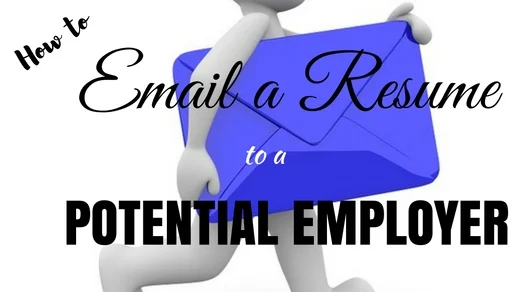When crafting a compelling CV, choosing the right skills to highlight is crucial. While hard skills (like technical expertise) are often easy to determine from job descriptions, selecting the right soft skills can be trickier. To help you make the best choices, this guide outlines the top 10 essential skills to include on your CV, ensuring that you stand out to employers.
1. Active Listening Skills: The Key to Effective Communication
Active listening is one of the most valued skills by employers. It’s the ability to fully concentrate, understand, and respond to a speaker with thoughtful feedback. Active listeners demonstrate engagement and respect, which fosters better collaboration and problem-solving.
Related Skills:
- Asking questions
- Note-taking
- Organizing information
- Punctuality
- Verbal/non-verbal communication
2. Communication Skills: A Must-Have for Every Job
Communication skills encompass both verbal and non-verbal methods of delivering information, whether in person, via email, or through presentations. Strong communication abilities ensure that you can clearly convey ideas, build relationships, and influence decision-making.
Related Skills:
- Active listening
- Public speaking
- Written communication
- Interpersonal communication
3. Computer Skills: Navigating Technology with Ease
In today’s digital world, computer skills are a necessity. Whether it’s basic word processing or mastering specific software, your ability to navigate different computer applications will be crucial in almost any job.
Related Skills:
- Word processing
- Spreadsheet management
- Email and calendar management
- Coding (for tech-related jobs)
4. Customer Service Skills: Enhancing Client Relationships
Customer service is all about addressing client needs effectively and creating a positive experience. Strong customer service skills, including active listening and empathy, are essential for building trust and satisfaction.
Related Skills:
- Empathy
- Problem-solving
- Patience
- Communication
- Reliability
5. Interpersonal Skills: Building Strong Connections
Interpersonal skills are crucial for effective teamwork and collaboration. Whether you’re managing a project or contributing as part of a team, your ability to communicate, empathize, and be adaptable will ensure smooth interactions with others.
Related Skills:
- Communication
- Flexibility
- Leadership
- Patience
6. Leadership Skills: Motivating and Guiding Teams
Leadership skills are essential for managing teams and motivating others toward a shared goal. Whether you’re in a formal managerial role or leading a specific project, these skills show that you can inspire and direct people to achieve objectives.
Related Skills:
- Mentorship
- Risk-taking
- Decision-making
- Team building
- Time management
7. Management Skills: Overseeing Tasks and Teams Effectively
Managers are responsible for guiding teams, delegating tasks, and ensuring that projects are completed on time. Strong managerial skills include the ability to plan, prioritize, and communicate effectively with your team.
Related Skills:
- Project planning
- Task delegation
- Team communication
- Leadership
8. Problem-Solving Skills: Finding Effective Solutions
Problem-solving is a skill that is highly valued across all industries. Whether the issue is technical or interpersonal, employers seek candidates who can identify challenges and quickly implement solutions to resolve them.
Related Skills:
- Critical thinking
- Attention to detail
- Research
- Collaboration
- Patience
9. Time Management Skills: Meeting Deadlines with Efficiency
Effective time management is essential to ensuring that tasks and projects are completed on schedule. By organizing your day, prioritizing tasks, and focusing on key objectives, you can meet deadlines while maintaining a healthy work-life balance.
Related Skills:
- Goal setting
- Prioritization
- Focus
- Task delegation
10. Transferable Skills: Adapting to Any Role or Industry
Transferable skills are versatile abilities that can be applied across various industries and roles. These include skills like leadership, communication, and organization, which employers value regardless of the position.
Related Skills:
- Creativity
- Flexibility
- Teamwork
- Adaptability
How to Identify and Showcase Your Best Skills
When compiling your CV, it’s essential to identify the skills that align with both your personal strengths and the job you’re applying for. Here are some strategies to help you highlight your best skills:
- Reflect on Your Achievements: Consider any awards, recognitions, or past accomplishments that showcase your skills. Think about the tasks that allowed you to excel and what skills contributed to your success.
- Ask for Feedback: Sometimes, others can identify strengths in you that you may not realize. Reach out to colleagues, mentors, or managers who can provide valuable insight into your top skills.
- Consult with Industry Professionals: If you’re unsure about what skills are in demand in your industry, talk to someone who is currently working in the field. This will help you tailor your skills list to match industry standards.
How to List Skills on Your CV
Once you’ve identified your best skills, it’s important to know how to present them effectively on your CV. Below are three popular formats for displaying your skills:
- Functional CV Format: This is ideal for individuals changing careers or those with limited work experience. In this format, your skills are highlighted at the top, followed by a brief professional history.
- Separate Skills Section: If you have extensive experience and want to emphasize your qualifications, list your skills in a dedicated section on your CV. This allows recruiters to quickly see the key abilities you bring to the table.
- Weave Skills into Your Professional Experience: Another effective option is to integrate your skills into the descriptions of your past roles. This provides concrete examples of how you’ve used your skills in real-world situations.
Final Thoughts
Crafting a standout CV requires more than just listing skills; it’s about strategically aligning your strengths with the job you’re applying for. By showcasing a combination of soft and hard skills, you’ll present yourself as a well-rounded candidate who can make valuable contributions to any team. Tailor your CV to the specific job description, and you’ll increase your chances of catching the recruiter’s eye.
Call to Action: Ready to take your career to the next level? Start by reviewing your CV and ensuring that your skills truly reflect your strengths. If needed, update your CV to match the job descriptions of your ideal roles and get one step closer to landing your dream job.





















